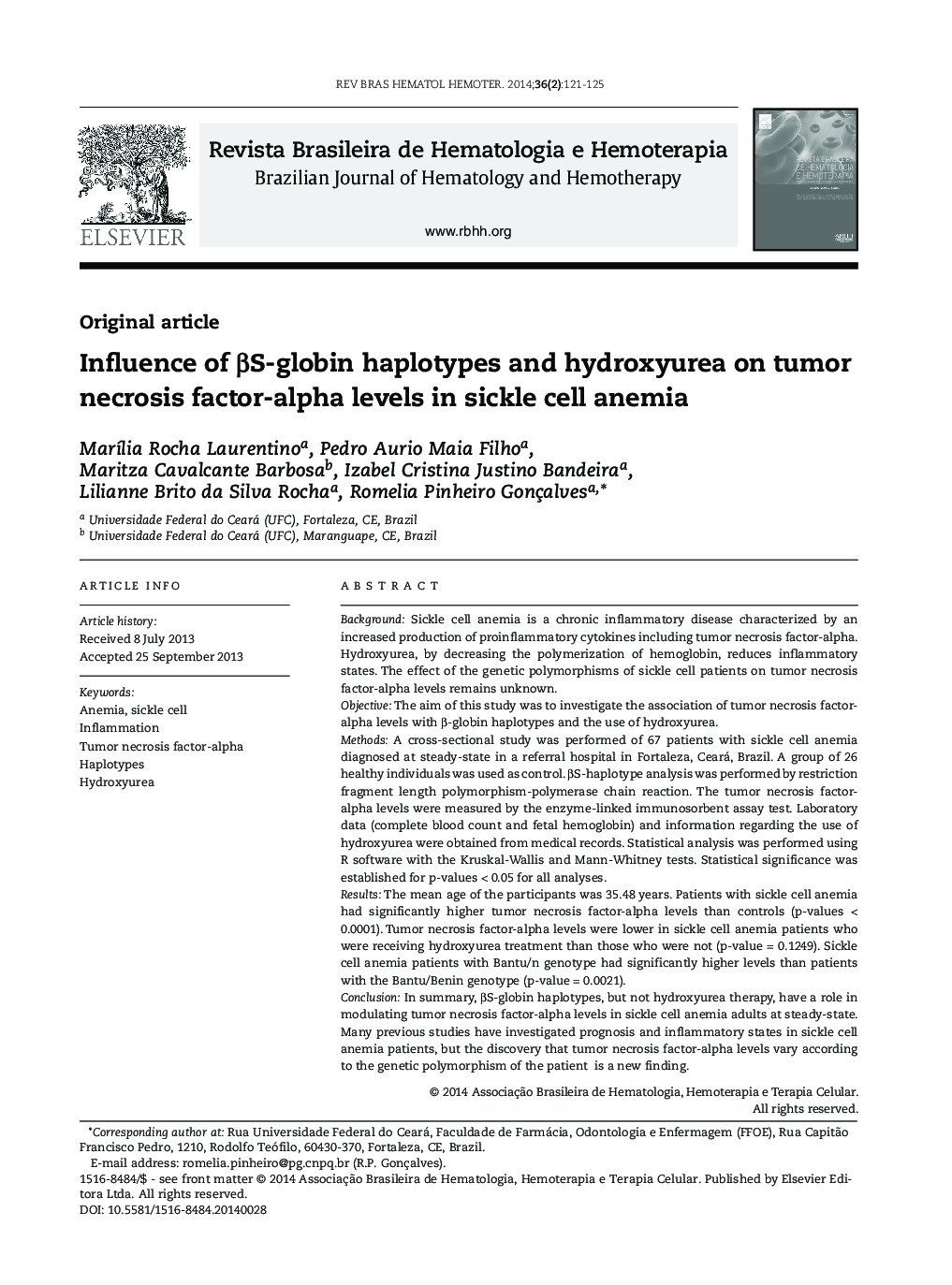| کد مقاله | کد نشریه | سال انتشار | مقاله انگلیسی | نسخه تمام متن |
|---|---|---|---|---|
| 3333153 | 1213162 | 2014 | 5 صفحه PDF | دانلود رایگان |

ABSTRACTBackgroundSickle cell anemia is a chronic inflammatory disease characterized by an increased production of proinflammatory cytokines including tumor necrosis factor-alpha. Hydroxyurea, by decreasing the polymerization of hemoglobin, reduces inflammatory states. The effect of the genetic polymorphisms of sickle cell patients on tumor necrosis factor-alpha levels remains unknown.ObjectiveThe aim of this study was to investigate the association of tumor necrosis factor-alpha levels with β-globin haplotypes and the use of hydroxyurea.MethodsA cross-sectional study was performed of 67 patients with sickle cell anemia diagnosed at steady-state in a referral hospital in Fortaleza, Ceará, Brazil. A group of 26 healthy individuals was used as control. βS haplotype analysis was performed by restriction fragment length polymorphism-polymerase chain reaction. The tumor necrosis factor- alpha levels were measured by the enzyme-linked immunosorbent assay test. Laboratory data (complete blood count and fetal hemoglobin) and information regarding the use of hydroxyurea were obtained from medical records. Statistical analysis was performed using R software with the Kruskal-Wallis and Mann–Whitney tests. Statistical significance was established for p-values < 0.05 for all analyses.ResultsThe mean age of the participants was 35.48 years. Patients with sickle cell anemia had significantly higher tumor necrosis factor-alpha levels than controls (p-values < 0.0001). Tumor necrosis factor-alpha levels were lower in sickle cell anemia patients who were receiving hydroxyurea treatment than those who were not (p-value = 0.1249). Sickle cell anemia patients with Bantu/n genotype had significantly higher levels than patients with the Bantu/Benin genotype (p-value = 0.0021).ConclusionIn summary, βS-globin haplotypes, but not hydroxyurea therapy, have a role in modulating tumor necrosis factor-alpha levels in sickle cell anemia adults at steady-state. Many previous studies have investigated prognosis and inflammatory states in sickle cell anemia patients, but the discovery that tumor necrosis factor-alpha levels vary according to the genetic polymorphism of the patient is a new finding. © 2014 Associação Brasileira de Hematologia, Hemoterapia e Terapia Celular. All rights reserved.
Journal: Revista Brasileira de Hematologia e Hemoterapia - Volume 36, Issue 2, March–April 2014, Pages 121–125